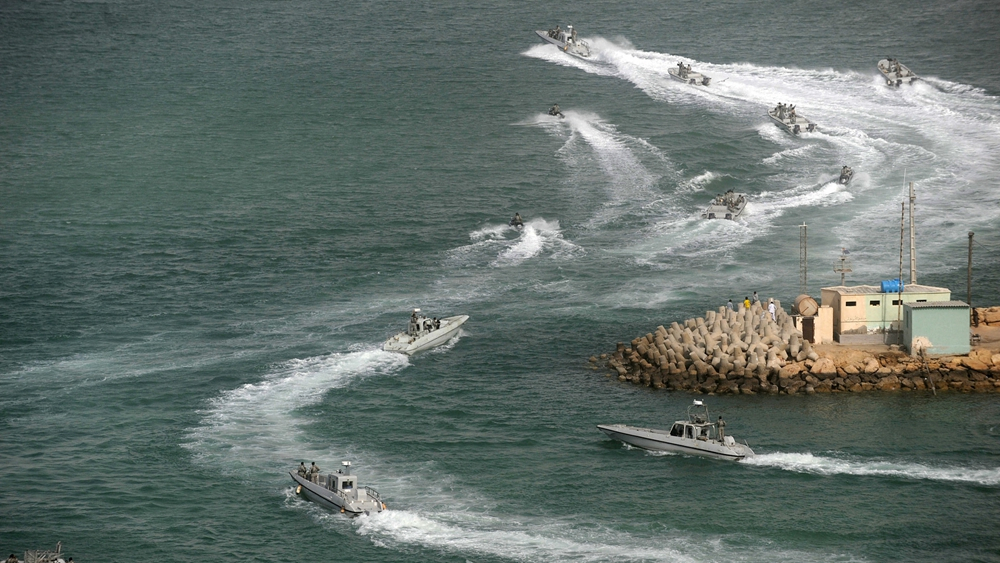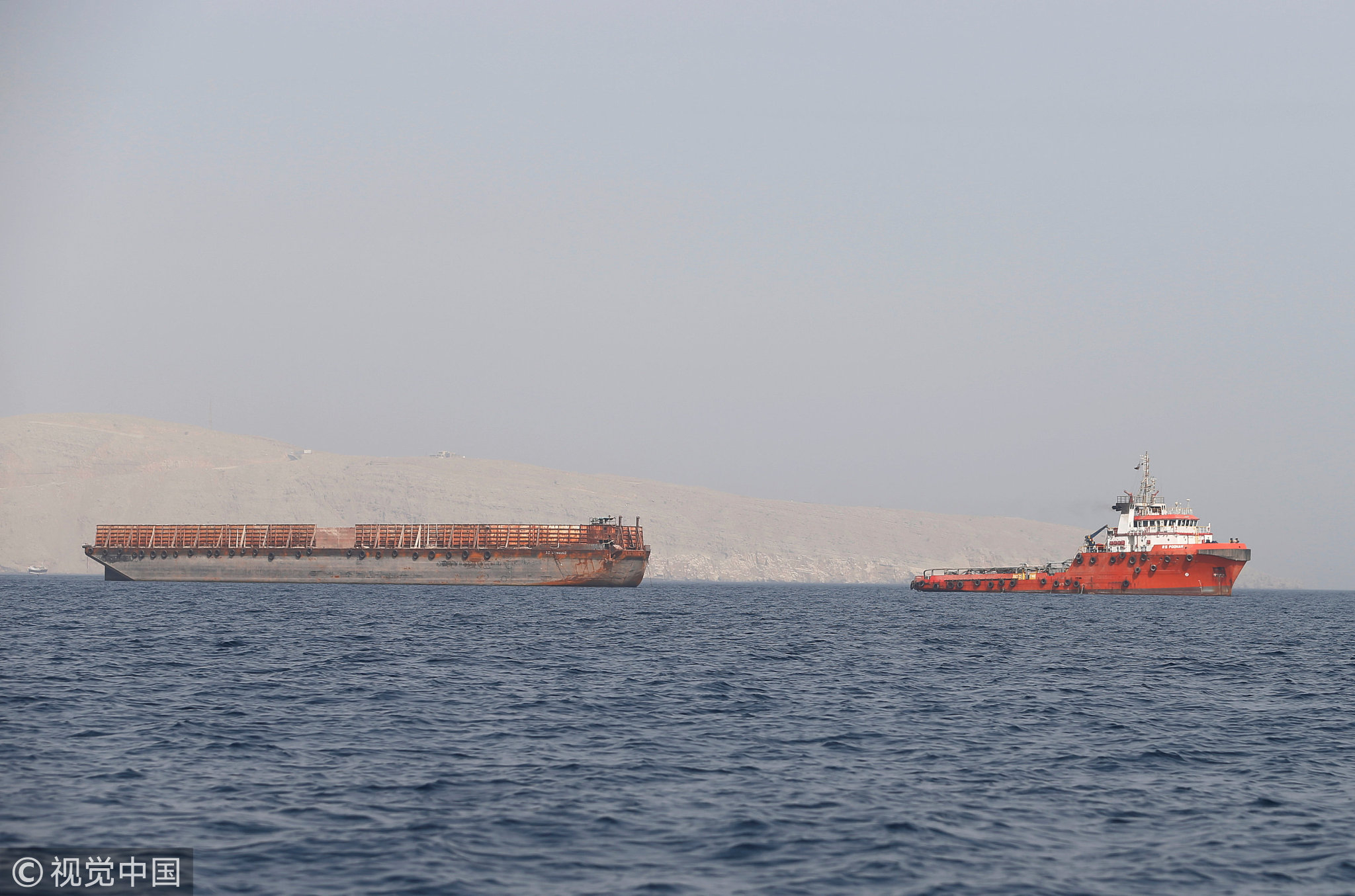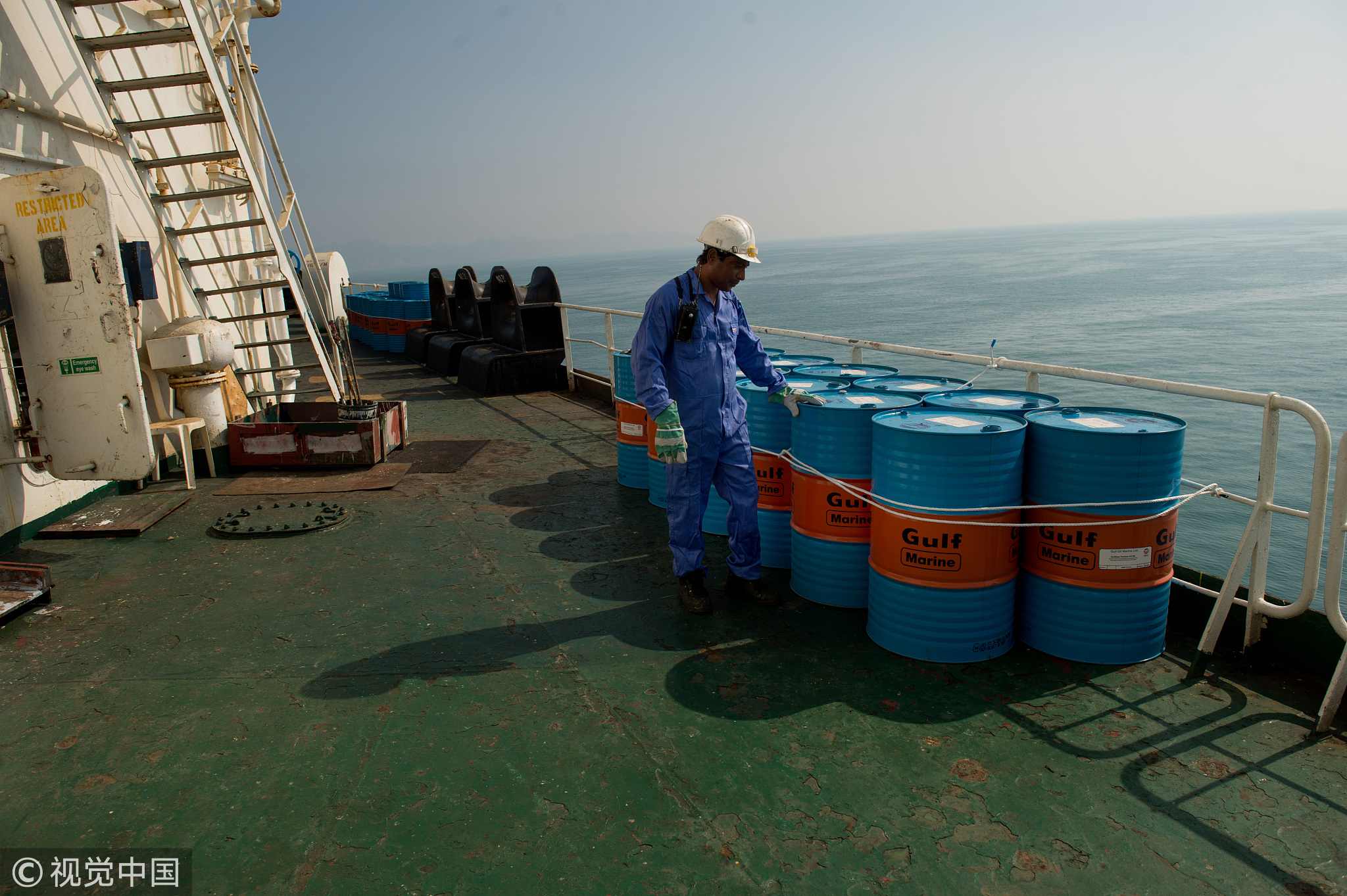
World
19:40, 08-Aug-2018
US Sanctions on Iran: Strait of Hormuz, a strategic pinch point, again in spotlight
Updated
19:04, 11-Aug-2018
By Ma Ke
06:01

Iran has threatened to close a key oil pass in the Middle East in retaliation to the US sanctions. The Hormuz Strait has been at the heart of regional affairs for decades. And now it is under the spotlight again as tensions between Iran and the US have escalated.
A third of the world's sea-borne oil passes through the sea passage every day. It is known as the Maritime Oil Lifeline, the World's Oil Valve, the Strait of Oil. It's also a handy bargaining chip for Iran whenever it's cornered by western powers.
The Strait of Hormuz is a waterway separating Iran and Oman and is the only maritime connection between the Persian Gulf and the Arabian Sea. It is 21 miles wide at its narrowest point, but the shipping lane is only two miles wide in either direction.

A tug boat moves cargo towards the Strait of Hormuz, in Musandam province, Oman, July 20, 2018. /VCG Photo
A tug boat moves cargo towards the Strait of Hormuz, in Musandam province, Oman, July 20, 2018. /VCG Photo
Its adjacency to Iran gives President Rouhani full control over the waters. If he decides to put words into action, it would take only a few warships to totally block the passage.
Some experts believe that Iran has the capability to block the 40 kilometer-wide Strait of Hormuz
"Iran could use its land-based anti-ship missiles, rockets and military vessels to attack merchant ships," said Zhang Junshe, the vice president of the Chinese Naval Research Institute.
Zhang said that Iran could also deploy a series of submarines to surrounding waters.

A crewman secures Gulf Marine oil drums on the deck of oil tanker 'Devon' as it prepares to transport crude oil from Kharq Island to India in Bandar Abbas, March 23, 2018. /VCG Photo
A crewman secures Gulf Marine oil drums on the deck of oil tanker 'Devon' as it prepares to transport crude oil from Kharq Island to India in Bandar Abbas, March 23, 2018. /VCG Photo
And Tehran has fighter jets that are also armed with anti-ship missiles, so blocking the Strait of Hormuz could be done with ease, Zhang said.
The Strait has been Iran's go-to choke point for decades whenever regional tensions flare up. Zhang said its closure would lead to further instability in the region, while oil prices would surge.
Other experts say Rouhani's threat is not news and there's no need to panic.
But something is different this time.
President Trump has vowed to resort to "international laws" to make sure the waterway stays open – a warning many analysts interpret as a guarantee of military action against Tehran if the Strait is shut down.

A customer pumps gasoline into his car at a gas station in the Bronx in New York, June 1, 2018. /VCG Photo
A customer pumps gasoline into his car at a gas station in the Bronx in New York, June 1, 2018. /VCG Photo
Closing the Strait would mean catastrophe for world energy markets. Mideast exporters like Saudi Arabia, Iran, the United Arab Emirates, Kuwait and Iraq would have to take a detour through the Suez Canal of Egypt to get their barrels to Europe.
The car industry, mining, manufacturing, would suffer first. But eventually, everyone would.
Asia Pacific, Europe, North America, would witness crude shortages.

SITEMAP
Copyright © 2018 CGTN. Beijing ICP prepared NO.16065310-3
Copyright © 2018 CGTN. Beijing ICP prepared NO.16065310-3